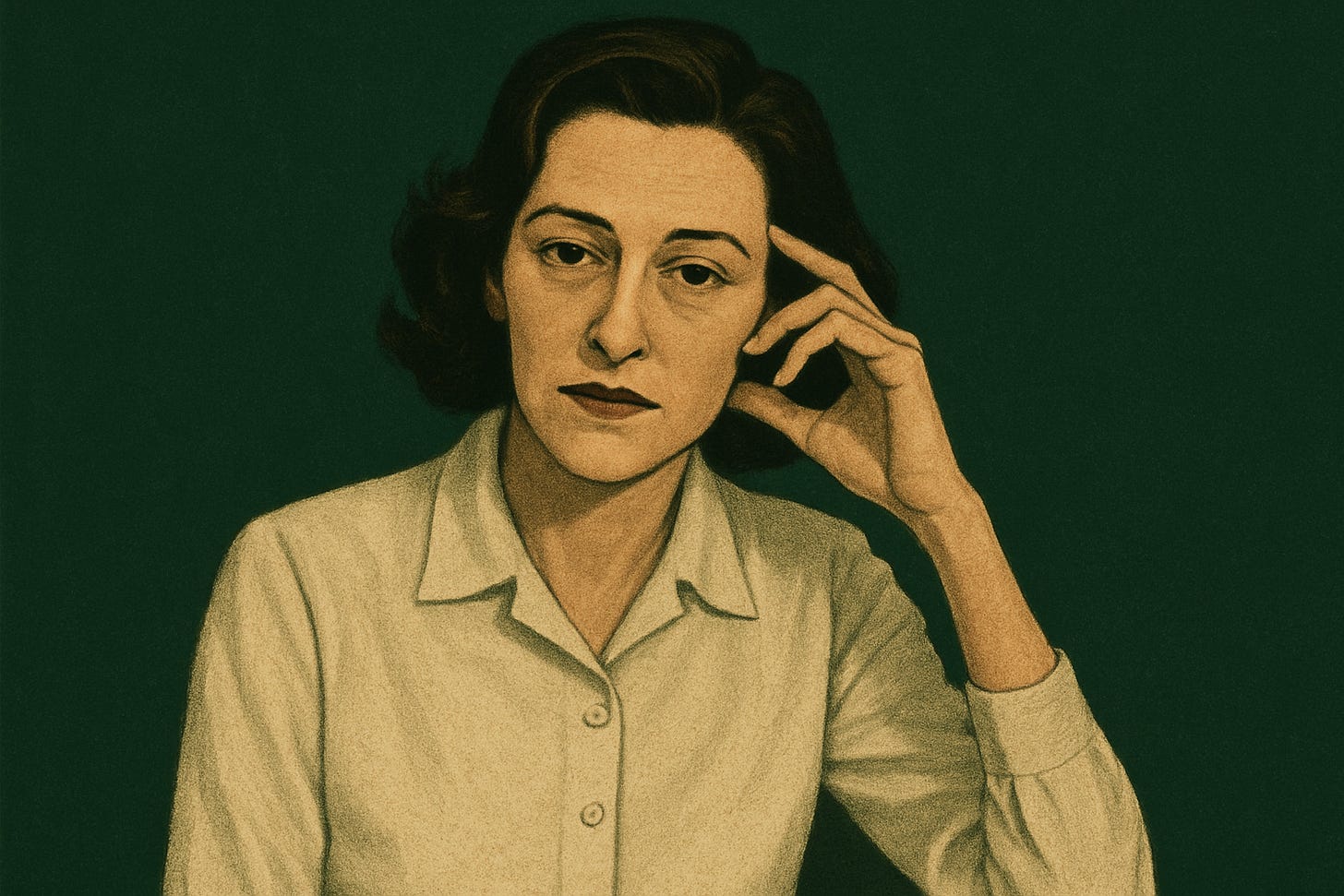To be truly seen, we must be willing to show the parts that tremble.
To Be Different Is to Be Deeply Alive!
Anne Sexton bled poems.
Every line she penned was a confession, every metaphor a mirror. While others wrote to impress, Sexton wrote to survive.
Her work carved open the polite surface of mid-century America, daring to speak of madness, motherhood, sex, death, and God in the same breath.
She wasn’t trying to be different; she was trying to be true, and that, more than anything, made her different.
In a world obsessed with being seen, Anne Sexton reminds us that visibility without vulnerability is hollow.
To be truly seen, we must be willing to show the parts that tremble.
That’s what she did; she wrote the unspoken. Her poems didn’t aim for perfection; they aimed for honesty. And honesty, in its rawest form, is often messy, uncomfortable, and deeply human.
So how do we live like that, different, and deep in our truth, without coming undone?
First, by telling the truth, even when it shakes.
Most of us edit our lives before we share them; smoothing the edges, hiding the contradictions. Sexton didn’t.
She wrote about the parts people avoid at dinner tables. She showed that truth isn’t always noble or beautiful, but it’s real, and realness is magnetic. To be deep is not to be complicated; it’s to be honest enough to stop performing.
Second, by treating pain as material, not as identity.
Sexton’s poems were full of suffering, but she didn’t glorify it. She used it. She shaped her darkness into language, turning chaos into craft. That’s the difference between drowning in pain and diving into it. We all have wounds, but not all of us give them purpose.
Being deep in your truth means letting your scars speak; not to gain sympathy, but to find meaning.
Third, by refusing to shrink.
Sexton was often called “too much”; too emotional, too sexual, too strange. But she understood something essential: to be alive is to be a lot. Her defiance was her art form.
Being different doesn’t mean being loud; it means staying loyal to your inner voice, even when the world rewards imitation.
And finally, by writing your own permission slip.
Anne Sexton didn’t wait for someone to validate her voice. She gave herself permission to speak, to feel, to exist fully. The rest of us are still learning how.
In every poem, Sexton asked the same question: “How can I live with all that I am?”
Maybe that’s the question we should all sit with.
To be deep in our truth is not to find an answer, but to live the question courageously.
So if you want to be different, don’t decorate yourself. Reveal yourself.
Thank you for reading. Your time and attention mean everything. This essay is free, but you can always buy me coffee or visit my shop to support my work. For more thoughts and short notes, please find me on Instagram.



